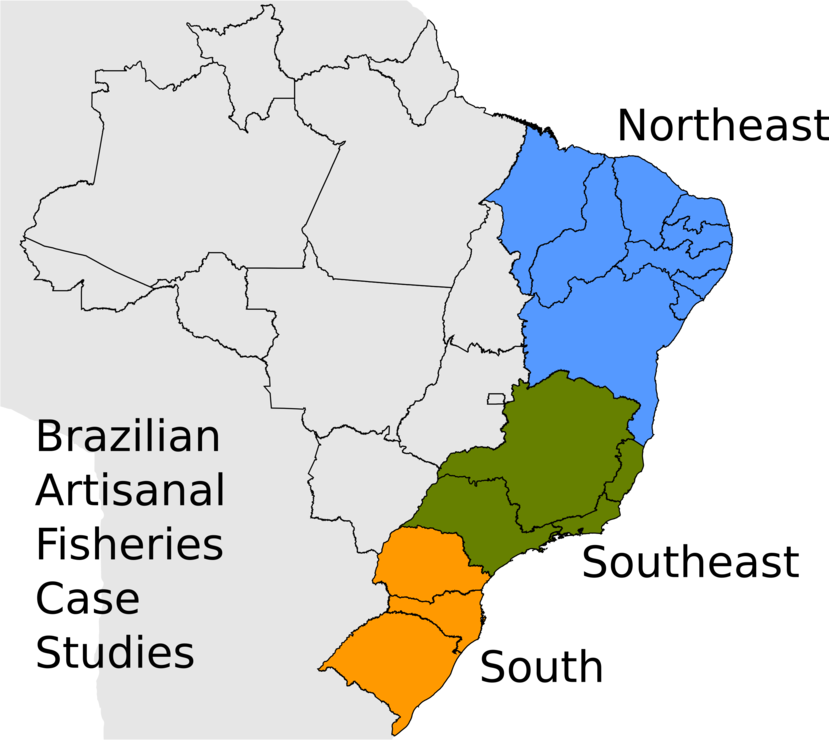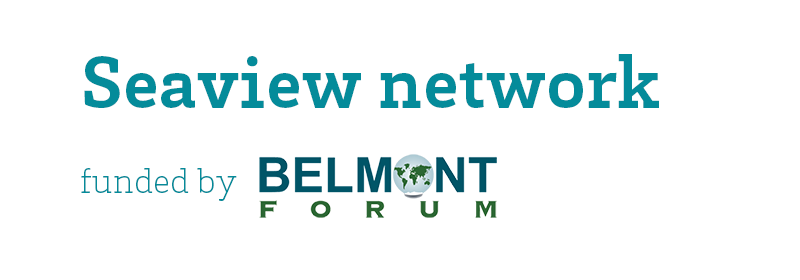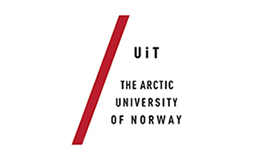Coastal Brazilian fishery
The artisanal sector plays an essential role in social and economic aspects of Brazilian fisheries. In the most recent estimate made in 2012 by the extinct Ministry of Fisheries and Aquaculture, about 98% of the 970 thousand registered fishermen identified themselves as working in artisanal fisheries. Also, the sector is responsible for more than 60% of total fish landings in Brazil, playing a key economic role in small communities along the coast. However, similarly to other countries, Brazilian artisanal fisheries is highly vulnerable to the effects of climate change, such as extreme climatic events. In addition, about 80% of Brazilian fisheries are currently at unsustainable levels. These factors contribute to affect the economic and ecological viability of the activity. Understanding how artisanal fisheries respond to climate change is necessary in order to determine the viability of the sector in the future. Full case study-coming soon


Assessing how Brazilian artisanal fisheries respond to climate change is a challenge in various aspects. Data on artisanal fisheries in Brazil is deficient both quantitatively and qualitatively. Fisheries monitoring data in Brazil is scarce, and the available data is often fragmented in time and geographically along the coast. In addition, the approaches used to gather data from the artisanal sector are often inadequate because most are based on approaches applied in Industrial fisheries, ignoring or being not capable to describe key aspects of the artisanal sector such as the organizational and cultural aspects that influence the activity. Another challenge is that the large extension of the Brazilian coast, spanning 7491km from tropical equatorial waters in the north to temperate waters in the south, is responsible to support diverse marine ecosystems and environmental conditions. Consequently, artisanal fishery is extremely diverse along the Brazilian coast, showing marked geographical differences, and being distinct from industrial fisheries in technological, economic, social, cultural and environmental aspects.
A set of alternative approaches are necessary to assess the effects of climate change on artisanal fisheries that is capable of :
- ) incorporating fishermen knowledge and behaviour into the model and
- ) dealing with poor quality and lack of data.
We intend to use interdisciplinary and participatory approaches to gather data and relevant information, and alternative modelling approaches to understand how climate change will affect the viability of artisanal fisheries. One of such approaches is the use of Bayesian Belief Networks to model fishermen behaviour in response to climate change, such as understanding their fishermen behaviour in response to extreme weather events and variability in target species. In order to understand the complexity of the activity in the country, we will select representative artisanal fisheries from the South, Southeast and Northeast of the country. We will assess how climate change scenarios will affect both the ecological and economic viability of artisanal fisheries, and evaluate the impacts of different management alternatives to guarantee the viability of the sector.










